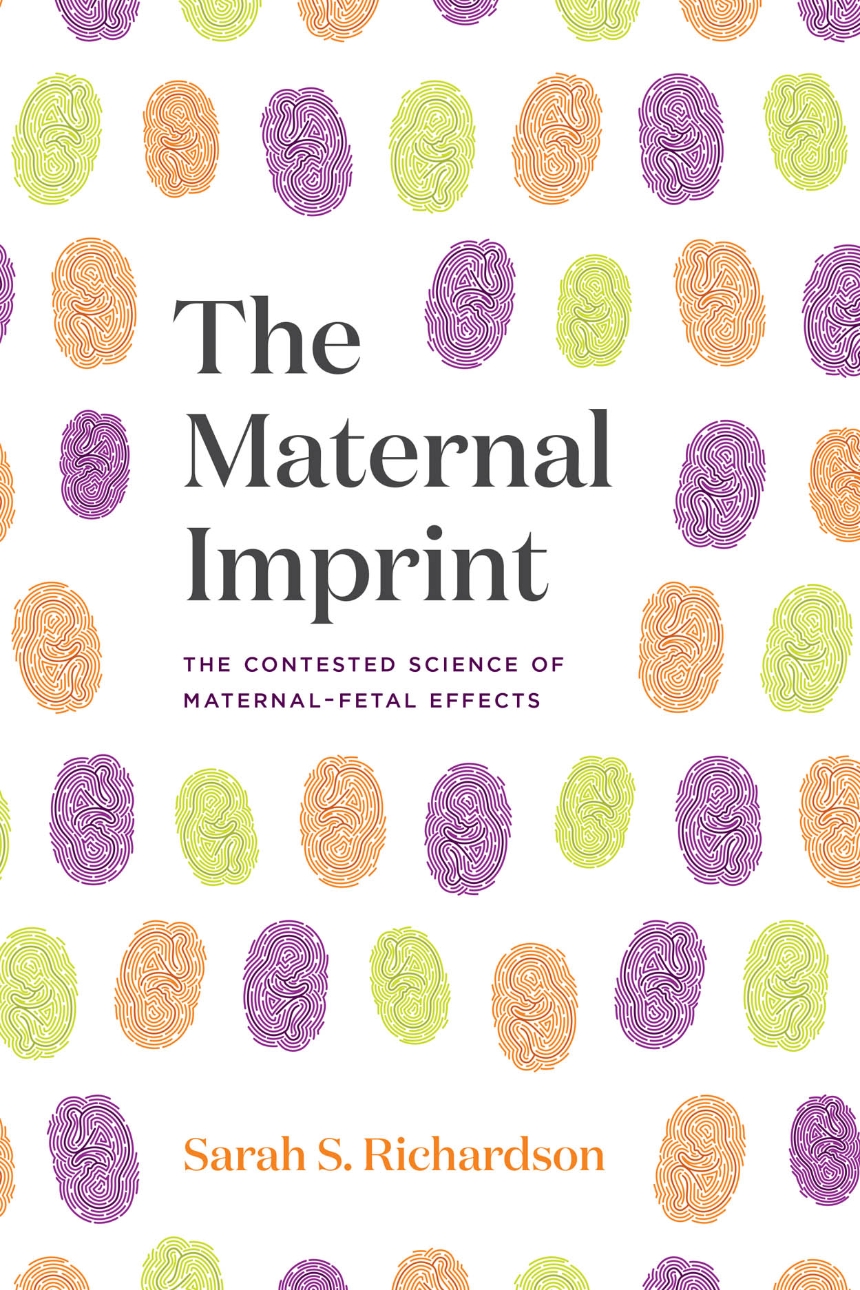The Maternal Imprint
The Contested Science of Maternal-Fetal Effects
9780226544809
9780226544779
9780226807072
The Maternal Imprint
The Contested Science of Maternal-Fetal Effects
Publication supported by the Susan Elizabeth Abrams Fund in History of Science
Leading gender and science scholar Sarah S. Richardson charts the untold history of the idea that a woman's health and behavior during pregnancy can have long-term effects on her descendants' health and welfare.
The idea that a woman may leave a biological trace on her gestating offspring has long been a commonplace folk intuition and a matter of scientific intrigue, but the form of that idea has changed dramatically over time. Beginning with the advent of modern genetics at the turn of the twentieth century, biomedical scientists dismissed any notion that a mother—except in cases of extreme deprivation or injury—could alter her offspring’s traits. Consensus asserted that a child’s fate was set by a combination of its genes and post-birth upbringing.
Over the last fifty years, however, this consensus was dismantled, and today, research on the intrauterine environment and its effects on the fetus is emerging as a robust program of study in medicine, public health, psychology, evolutionary biology, and genomics. Collectively, these sciences argue that a woman’s experiences, behaviors, and physiology can have life-altering effects on offspring development.
Tracing a genealogy of ideas about heredity and maternal-fetal effects, this book offers a critical analysis of conceptual and ethical issues—in particular, the staggering implications for maternal well-being and reproductive autonomy—provoked by the striking rise of epigenetics and fetal origins science in postgenomic biology today.
The idea that a woman may leave a biological trace on her gestating offspring has long been a commonplace folk intuition and a matter of scientific intrigue, but the form of that idea has changed dramatically over time. Beginning with the advent of modern genetics at the turn of the twentieth century, biomedical scientists dismissed any notion that a mother—except in cases of extreme deprivation or injury—could alter her offspring’s traits. Consensus asserted that a child’s fate was set by a combination of its genes and post-birth upbringing.
Over the last fifty years, however, this consensus was dismantled, and today, research on the intrauterine environment and its effects on the fetus is emerging as a robust program of study in medicine, public health, psychology, evolutionary biology, and genomics. Collectively, these sciences argue that a woman’s experiences, behaviors, and physiology can have life-altering effects on offspring development.
Tracing a genealogy of ideas about heredity and maternal-fetal effects, this book offers a critical analysis of conceptual and ethical issues—in particular, the staggering implications for maternal well-being and reproductive autonomy—provoked by the striking rise of epigenetics and fetal origins science in postgenomic biology today.
376 pages | 22 halftones, 2 tables | 6 x 9 | © 2021
Women's Studies:
Reviews
Table of Contents
1. Introduction: The Maternal Imprint
2. Sex Equality in Heredity
3. Prenatal Culture
4. Germ Plasm Hygiene
5. Maternal Effects
6. Race, Birth Weight, and the Biosocial Body
7. Fetal Programming
8. It’s the Mother!
9. Epilogue: Gender and Heredity in the Postgenomic Moment
Acknowledgments
Notes
References
Index
2. Sex Equality in Heredity
3. Prenatal Culture
4. Germ Plasm Hygiene
5. Maternal Effects
6. Race, Birth Weight, and the Biosocial Body
7. Fetal Programming
8. It’s the Mother!
9. Epilogue: Gender and Heredity in the Postgenomic Moment
Acknowledgments
Notes
References
Index
Awards
ReproNetwork: Adele E Clarke Book Award
Won
Harvard Faculty of Arts and Sciences: Walter Channing Cabot Fellowship
Won
